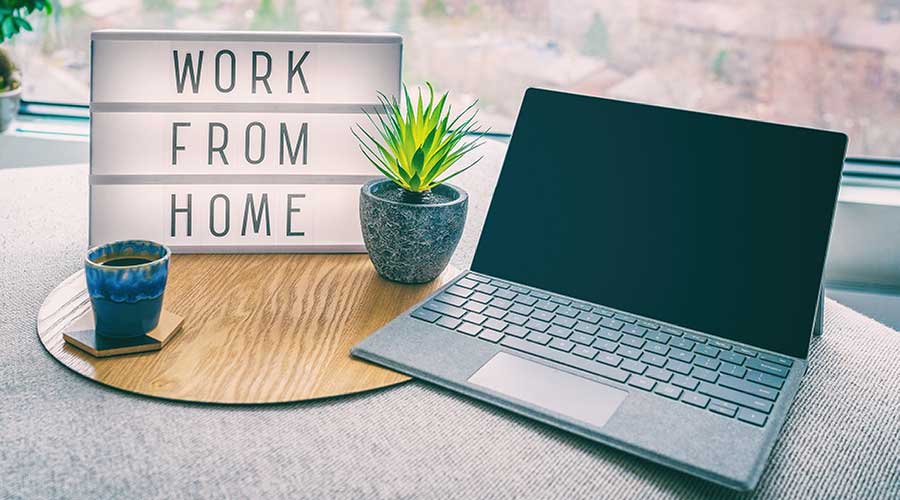In the era of COVID-19 pandemic, businesses are struggling to open and more people continue working from home.
While many lost their jobs, modern technology through advancements created many new. Technology brings ease in our daily life as we can collaborate with team members and can share business documents safely and securely.
However, the combination of quarantine and constantly staying online has some negative impacts on mental health.
Before the pandemic, 81 percent of the remote workers expressed that they feel exhaustion, mental suffocation under longer working hours and 19 percent online workers revealed they feel loneliness.
Pandemic just brought more anxiety, fear of having an infection and social isolation in the community.
In order to fight against loneliness, anxiety, exhaustion and keeping the mental health in check during working from home, one must bring a balance in their lives and here is how;
1 – Separate your Workspace
In normal life when you leave the office you basically distance yourself from work. But in the pandemic, if you are having a meeting on the couch or opening your email in the living room and sticky notes floating as you sit in the lounge will always give you a feel that you are in the office and it will not be possible to distance yourself from work.
In this situation, experts advise to build a separate workspace in your house and do all of your work-related activities in that particular area.
No matter how much you decorate your working table to make it less depressing if it’s right in front of you every time you feel depressed.
To improve your mental health it’s very necessary to withdraw from the workspace at the end of the day.
2 – Have Dedicated Communication Time Slots
Emails, messages, and notification are the ones that can easily deviate your focus from work. These tiny distractions are a barrier to being productive. In order to avoid being distracted, you need to schedule a time slot in which you are going to reply to all the messages, notifications and can check emails.
Choose the time slot which is least productive. There are some people who like to work in the morning and then there are those who are productive in the nighttime. So if you are a morning person choose a slot that does not disturb your efficiency.
3 – Create a Routine
There is a lack of routine structure for the remote workers in the coronavirus pandemic as they need to take care of their kids, spouse, parents, and daily routine household activities.
To balance family life, you need to create a routine and follow it strictly. Make a timetable of your daily tasks and improve your mental health and deal with both the house and work-related activities accordingly.
4 – Mark Your Boundaries
Whether you are a freelancer dealing with challenging clients or employed as an office worker following your supervisor, it is necessary to express your limit.
The pressure of being available 24/7, responding to customers even after the office hours or handling one more task at the end of the day you feel pressure and anxiety. In order to make secure your mental health, you need to first safeguard your personal time.
All you have to do is express your concern to your supervisor regarding your availability of office hours and clarify what qualifies as an emergency. By doing that it will spark a light of positivity.
Finding an equilibrium while work from home is a difficult task but by making effort you will succeed eventually.
At the moment the coronavirus cases are declining and the world is reopening and returning to normal life but the threat of coronavirus second wave is also serious as we have Eidul Azha soon and Muharram is upon us.
77 percent of the executives in Pakistan revealed that they are still planning to continue working from home as they don’t want to take the risk of endangering the lives of their employees, so it gets even more important to improve physical and mental health.
Image source

















